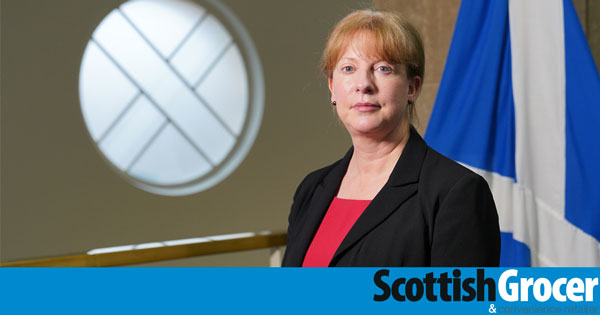World
Highlanders FC to Mary’s Meals: How a Scottish legacy lives on in Zimbabwe

And another Scots-Zimbabwean connection remains strong. Since 2018, Mary’s Meals has been serving school meals in the southern African country. Funded by donations from supporters in Scotland, the UK, and across the world, the charity feeds over 100,000 children in Zimbabwe every school day – for some of those children, it will be the only food they eat that day.
Priviledge is a pupil at Zorizozo Primary School in Murewa, around a two-hour drive from the capital city, Harare. He lives with his gran and two younger siblings. His mother passed away during childbirth. His father abandoned him. Grandmother, Judith, says: “We don’t even have a clue where he went.”
At 65 years old, Judith has high blood pressure and struggles to look after Priviledge and his two younger siblings – one who is too young for school and another who is enrolled elsewhere, where thankfully they also get a meal. Aged 11, the same as a Primary 7 student in Scotland, Priviledge has effectively become the head of the family.
He says: “I am taking it upon myself as a responsibility to help. That’s how we get food. I don’t have a problem making sure we get what we need.”
Judith explains: “I can’t do as much manual labour as I used to. Priviledge has to help a lot. Especially during the weekend, I take him out to do odd jobs. That’s how we get everything.”
Priviledge (right), 11, lives with his grandmother, Judith (left), and his two younger siblings. He is essentially head of the household. (Image: KB MPOFU/Mary’s Meals)
The family regularly relies on handouts from neighbours to feed themselves. But food here is scarce.
However, every school day, Mary’s Meals serves up hot, nutritious porridge to each eager pupil at Zorizozo, alongside local partner, Mavambo Orphan Care. If it wasn’t for this, Priviledge would likely have to skip school to search for food.
Instead, he is energised to arrive in class every day and gain an education. Priviledge says he hopes to become a policeman one day, “so I’m able to provide for my family.”
For Judith, the school meal brings relief. She says: “It’s really helping me because I cannot fend for him. Now, I only need to find the evening meal.”
Priviledge, unshakably selfless beyond his young years, thinks only of his family: “If it was possible, I’d carry the porridge home because there’s nothing there.”
His situation is far from an isolated one, nor is it restricted to just one region of Zimbabwe.
This part of the world was once widely renowned as the ‘breadbasket of Africa.’ The UN predicts an estimated six million, over 35% of the Zimbabwean people, won’t have reliable access to nutritious food by the beginning of next year.
Read more:
In April, a ‘national disaster’ was declared to tackle Zimbabwe’s drought crisis, caused in large part by the complex El Niño weather pattern, with failed rains resulting in parched plains across the country. This year’s rainy season was supposed to start at the beginning of November. It has not yet arrived.
Residents of Bulawayo are currently restricted to just 36 hours of water a week. A two-hour drive from there, along sandy, rocky roads into the rural Umguza District, the situation is even more dire.
Buhle is a student at Ngazini Primary School. Also 11, she is another double orphan – both her parents passed away in 2020. Her birthday and Christmas are on the horizon, but she doubts the family will be able to celebrate either.
Buhle is looked after by her Aunt, Girl, who often works on nearby farms to afford food. The average life expectancy in Zimbabwe is 59, and at 54 years old, Girl worries she’ll soon be too frail to continue. She is responsible for feeding Buhle and another five children, a harsh struggle amid the current drought, with fears things will get even worse. Girl says: “It’s been hard, it’s still hard and if the rainy season fails again, I can’t imagine how life is going to be. I don’t know where to go from here.”
Just one day a week, Buhle gets to eat porridge at home. More often than not, she’ll arrive in class on an empty stomach after the long walk to school.
She dreams of becoming a pilot and seeing other countries, a hope fuelled by Mary’s Meals porridge: “Because I don’t get to eat at home, the porridge at school at least gives me the chance to concentrate. School is do-able. I can now read, I can pass. When I pass, my dream is getting nearer and nearer.”

Despite the circumstances, Girl retains her own hope for Buhle, the family, and the local community. She is one of several volunteer cooks who, alongside local partner, ORAP Zimbabwe, ensure the children are fed at school, a way of giving back for those who make Mary’s Meals happen:
“If you know your kids are going to be eating in school, if someone has alleviated that pressure from your pockets, why wouldn’t you go and help out? The only thing that is needed is your labour and your labour is controlled by you.
“The kids are eating, you are cooking, everyone’s happy.”
Our next report in this series about Mary’s Meals’ work in Zimbabwe will focus on education and how the charity provides hope for the future by attracting children to school. You can read the article on Sunday, 8 December.
It costs just £19.15 to feed a child with Mary’s Meals for an entire school year.
This winter, you can Double The Love, with all donations made to Mary’s Meals being doubled by a group of generous supporters, up to £1.1 million. The gift matching will end when we reach the total, so please donate today to ensure your kindness goes twice as far. To find out more and donate visit marysmeals.org.uk










